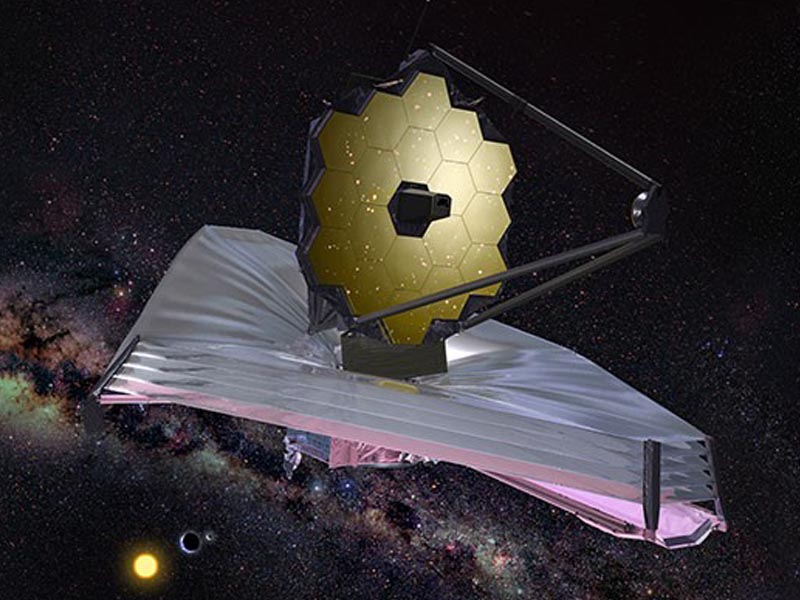
Event Details
Dr. Giuseppe Cataldo The James Webb
Learn more
Event Details
Dr. Giuseppe Cataldo
The James Webb Space Telescope (JWST) will succeed the Hubble Space Telescope in our endeavors to observe the first stars and galaxies born out of the darkness of the early universe. JWST will answer questions about how such galaxies evolved over billions of years, how stars and planetary systems form, and what the building blocks of life are. To achieve these goals, JWST will collect infrared light through a ~6.5-m-diameter primary mirror and will analyze this radiation by means of four scientific instruments. JWST will orbit around the second Sun-Earth Lagrange point and will be equipped with a five-layer sunshield enabling cryogenic (< 50 K) operations. JWST is an international effort of NASA and the European and Canadian Space Agencies and is scheduled to launch in the spring of 2019.
In this presentation I will provide an overview of the mission and its current development status. I will then describe a model-based systems engineering methodology which was developed to perform model validation in a fully automated fashion and provides mathematical bases to the search for the optimal parameter set that minimizes the discrepancies between model and data. In addition, by rigorously quantifying input model parameter uncertainties upstream of the model, this methodology allows one to determine their influence on specific quantities of interest and target such parameters by additional research to reduce their variance. This methodology was successfully applied to the JWST thermal system, which is critical for the proper functioning of this infrared telescope, and is currently being used for the Observatory Integrated Model to perform final pre-launch verification-by-analysis of key JWST performance requirements.
Dr. Giuseppe Cataldo is a systems engineer for the James Webb Space Telescope and NASA’s technology development program. His expertise is in the design and optimization of space systems with application for astronomy and astrophysics. He earned his PhD in Aeronautics and Astronautics from the Massachusetts Institute of Technology in 2015, master’s degrees in Aerospace and Aeronautical Engineering from Politecnico di Milano jointly with ISAE-SUPAERO and Politecnico di Torino within the TIME and “Alta Scuola Politecnica” programs in 2010, and a bachelor’s degree in Aerospace Engineering from Politecnico di Milano in 2007.
He joined NASA in 2009 fully sponsored by the European Space Agency as one of the two European students selected for the NASA Academy, NASA’s premiere student leadership program. Giuseppe has contributed to a variety of NASA missions and projects and has received several awards, including NASA’s 2017 Early Career Public Achievement Medal. He serves as a reviewer, panelist and member of several scientific and technical committees.
Giuseppe is fond of space policy and pursues outreach presentations around the world. He speaks six languages and in his spare time he enjoys playing the violin, swimming, skiing, and sailing.
Time
20 December 2017
14:00
Location
Politecnico di Milano - Sala Consiglio, DAER, 2nd Floor, Building B12
Via La Masa, 34 - 20156 Milano
Organizer
Politecnico di Milano